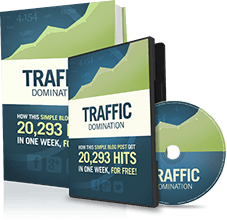Dan McComb Interview, Biznik.com Co-Founder Shares His Entrepreneurial Secrets
[podcast]http://buzzprofits.com/Dan_McComb.mp3[/podcast]
++++++
++++++ To Listen To The Dan McComb Podcast Click The Play Button Above ++++++
Hi Everyone,
Today I am delighted to present an interview with a remarkable Entrepreneur – Dan McComb.
Dan is one of the co-founders of Biznik.com
Biznik.com is a website I only discovered recently and I have to say I am very impressed. In a very short time, Dan and his co-founder Lara Feltin have built a remarkable community of entrepreneurs and small businesses dedicated to helping each other succeed. What brought Dan and Biznik.com to my attention was the recent Biznik National Entrepreneur study sponsored by iStockphoto
Some incredible stats and information have come out of this survey – such as:
— Nearly 33% of people said they “wanted to do something they enjoy”
— Nearly 60 % said that “personal interests and values were the main
drivers behind their entrepreneurial pursuits”
— Another 25% cited the fact that they did not want to work for someone
else
— And, while only 60% of the respondents said they were satisfied with
the performance of their business, 91% claim they are satisfied with their
decision to work for themselves
This is an amazing interview (conducted by my Father – Barry Dunlop) and we have both a Podcast (above) and a Transcription below. Dan comes out with some real gems of information — one in particular that got my attention was:
Collaboration beats Competition
Read / Listen to the interview to discover more and as always I look forward to your comments.
Very Best Wishes
Michael
TRANSCRIPTION:
Dan McComb Interview
Barry Dunlop: Folks, this Barry Dunlop at WebMakeMoney.com. I’m very fortunate to have a very special guest on the line today, a gentleman by the name of Dan McComb. Dan McComb is from a wonderful website I’ve just become familiar with recently called Biznik.com. Now let me spell that to you, that’s B-I-Z-N-I-K.com. Biznik.com is a community for entrepreneurs and small businesses, dedicating to helping each other succeed. I’d actually probably call it a social network but we’re going to be speaking to Dan in a moment and he’s going to enlighten us a whole lot more about Biznik and what it is. Are you on the line there, Dan?
Dan McComb: Hi, Barry.
Barry: Good, good to have you, Dan. We really appreciate you coming on board. We know you have a very, very busy time at the present. One reason being actually you seem to be all over the internet at present because of the Biznik National Entrepreneur study sponsored by iStockphoto. It’s a survey to determine the primary concerns and motivations of US entrepreneurs.
Normally I’d start off by talking about Biznik but this survey is fascinating. In fact, the more I look at it, the more fascinated I become with it. So, first of all, tell us how you got involved with iStockphoto.com, how the survey came about and then we can maybe talk about some of the surprising results and things that came out of it.
Dan: Absolutely, yeah, well you know I was so fascinated with entrepreneurship and why people are willing to leave a comfortable job and strike off into the unknown and start something despite the challenges associated with it and so one of the questions we asked entrepreneurs was, “What is your biggest challenge, what are you facing, you know, what are the hardships?”. And the first thing, the really surprising finding of the survey was that the number one thing that people report as the biggest challenge was that it’s the reduced income associated with starting a business. I suppose that actually shouldn’t be surprising because, you know, when you jump off, quit a day job and start your own business, you know, often you can expect not to make as much money at least initially and there’s certainly more people with their hand out, you need to hire web designers, you need to get a graphic designer to build you a logo or a website, whatever, all those things, right? Two other things came up. The other one was isolation; people feel isolated and then the other one is they’re working really long hours. So, these are the three biggest challenges entrepreneurs face but to back up and specifically address your question, I kind of got ahead of myself here, iStockphoto and myself and Biznik, we actually found out about each other through Bruce Livingstone who is the founder of Istock who got started up in Calgary, Alberta which is actually where I used to live when I was a kid.
Barry: I’m familiar with it. It’s a great place. I’ve been there last month.
Dan: Oh yes, cold place but great place. In any case, I started making a film about entrepreneurship last April and this film, we had interviewed about 270 people to find out, you know, more about why they do what they do despite the challenges. And one of the people I interviewed for the film was none other than Bruce Livingstone and so he had an extraordinary story that actually did make it into the film. The film is in post production right now. And that’s how we connected. That’s how we decided, you know, this is great, we’re both kind of doing the things and we should try to find a way to work together and that’s what happened. We jointly authored this survey along with a professor at the School of Business here in Washington Sate, University of Washington.
Barry: That’s wonderful. I do know there are one or two surprising outcomes about the survey as well. Do you want to take about those in particular because, I mean. Actually I think I will actually just say something. That reduced income at the beginning is something, I think, that is the obvious thing but I find that a lot of young entrepreneurs are not really aware that that’s going to happen and I think the other thing they’re not aware of is that there’s going to be a lot more people with their hands out expecting you to pay them for things.
Dan: It’s really true, yeah.
Barry: It’s really true.
Dan: And it’s interesting, you know, it’s probably not the most surprising thing, right? Because when you think about it, when you take those risks it’s not surprising that that would happen but what is surprising for me in the results of the survey was getting to the motivation of why people start businesses. Many surveys have shown that the number one reason why people start a business is nothing more complicated than this: they simply don’t want to work for someone else. Now, we expected that that would be what we would find in our survey too. It’s a very consistent finding in many surveys. However, that’s not what we found. The number one reason that people told us why they start their business is because they want to do something that they enjoy. Now, that’s interesting, right? So, it’s not like, “I want to make a lot of money”, “I want to change and revolutionize an industry”, “I want to become famous” or “I don’t want to work for someone else”. It’s “I want to do something I enjoy”, “I want to love what I do”, “I want to be happy”. So, you know, that’s interesting. Actually, the number two thing in our survey, in fact, was “I don’t want to work for someone else”, and it was a close second. It was 33% to 27%. But nevertheless we really thought that was striking and it actually supports a finding that the Gallup Polling organization found very recently. In fact, they released the results of their survey about two weeks before we released ours. And what they found for the first time was across all professions in the United States including such categories as doctors and attorneys and, you know, engineers. One of the categories they listed was entrepreneurs and people who are running their own business and they asked them a bunch of questions about job satisfaction and guess who came out number one as the happiest.
Barry: Entrepreneurs?
Dan: Entrepreneurs!
Barry: Amazing.
Dan: Entrepreneurs. They’re happier than any other category of professional and that is despite the challenges, right? Despite those challenges that I outlined at the beginning that you’re going to be making less money, you’re going to be working longer hours and there’s a lot of uncertainty and risk that comes with it.
Barry: This is all fascinating stuff, Dan. Actually, I’m going to encourage everybody. When we publish this interview online, we’re going to include a link to the survey. If you’re the scientific type, it’s obviously going to be very interesting for you. If you’re an entrepreneur, it’s going to be very interesting to you. There’s so much there, which actually for me as an entrepreneur reading it was just nice to know that somebody was paying attention to us and it was also nice to know that actually it represented us all very well. If I can come back now to Biznik, if I may, Dan, as I said in the beginning, it’s an amazing website. I know it’s been around actually I discovered the other day, it’s been around a little bit longer than I anticipated. It’s been around something like four years now. So, possibly first of all, could you give us a little bit of background on how it got started, what was the thinking behind it starting? I mean, am I fair to call it a social network? It’s sort of a different kind of social network because there’s obviously a bit of meeting up and so on and so forth. So, I’d love you to elaborate on that, Dan, please.
Dan: Absolutely, yeah. Well four years ago my wife and I were both self employed; she as a photographer, me as web developer and we were looking to grow our businesses and we looked around at the options for networking here in Seattle and we were disappointed with what we found and so necessity being the mother of invention as it is often for entrepreneurs we decided to roll our own and just invite a bunch of our friends and see what we could start. It didn’t even start out as a business idea. It really just started out as solving our own problem and so we got together with some people. I built a website in my spare time. Literally, over a weekend I used some code on a different project I’d been working as the foundation and got it up and running and here we are four years later. About 40,000 members mainly active in the northwest around the Seattle area because of the fact that we emphasize face to face connections. And so it is a social network but it’s a little different than the kinds you’ve heard of like Facebook or Twitter in that there’s a very strong face to face component in what we do.
Barry: And I think face to face is still pretty cool and pretty good actually. I’m very confident Dan it’s going to make a comeback despite Twitter. I think I also read something like you’re in a 140 different countries, something like that. Is that right or did I read that wrong?
Dan: No, it’s correct. We’re in 140 countries but the reality is that, you know, there’s 4 people in Malaysia and, you know, 20 in China or whatever. It’s a power curve that really has a long tail with not much activity even though it sounds great. The real activity is happening in English speaking countries and certainly the United States is by far the largest.
Barry: And you mentioned earlier about solving problems. Actually, I think I saw it on the website or maybe it was you or somewhere I saw the best ideas come from solving one’s problems or solving problems and that’s what entrepreneurship is almost to some degree, isn’t it?
Dan: I think it is and that’s one of the reasons why it’s so important to meet other entrepreneurs because it’s often in conversations that you have with other people who are facing the same challenges and the same opportunities as you are that you can really discover possibilities and opportunities. And sometimes it isn’t even about finding new opportunities and exploiting them. It’s really about just the support that comes from having the comradery and feeling like you’re part of something, that you’re not just going it alone. And that’s been really a powerful thing and it’s really one of the things that people tell us why they really like being part of Biznik is really the community piece.
Barry: I mean, no, it’s quite clear just looking at the website how important this is and the thing that got me in particular was sort of this localized community as well which was obviously a very, I mean, I’ve been a lifelong entrepreneur but if I had my time again the one thing I would have done sooner would’ve been got into mastermind groups or mentoring groups with fellow entrepreneurs. They didn’t have to be in the same industry, completely unrelated industries just because there’s support in doing that. And what Biznik is doing is a phenomenal example of making that much easier for people to do. One other thing which I like about website which really got me and is you make a statement which is “collaboration beats competition”. I mean, it’s a very competitive world of business out there so you’re making a great, great statement, there.
One which I happen to personally agree with but which I’d love you to elaborate on a bit is:
Collaboration beats Competition
Dan: Well I think we have a very competitive world; certainly a media landscape that emphasizes competition because, you know, I think we’re hard-wired as human beings to really key on when there’s conflict, you know. So we’re very interested in who’s winning the search engine war, is it Google or is it Microsoft or is it Yahoo? You know, these are compelling because anytime there is stakes where there can be winners and losers it really gets our attention. We’re just born that way, it seems. But the reality though is that when it comes to entrepreneurship and starting a business, if you approach a business which that kind of a mind set you really are setting yourself up for a really big challenge. I mean, if you’re Microsoft you can certainly take a very competitive stance against the rest of the world because you’ve got the resources but when you’re small and you’re a one person company or just a very small team you have much more to gain by collaborating with even people who you might otherwise think of as competitors to get ahead. In fact, Microsoft is really an example of this on a really epic scale. When you think about how Microsoft was competing with Apple Computer in the beginning, Apple really took a go at it alone stance and, you know, Apple they’re extraordinary, their products are amazing and they actually are rare in the case of large businesses that successful that actually can go it alone because they’re that smart, however, they only control a small percentage of the market.
Microsoft has upwards of 90% of the market even today and that I think is a result of Microsoft’s much greater emphasis on partnering with other firms, existing firms to get ahead.
Barry: Perfectly put, Dan, perfectly put. Obviously, at Biznik how long was Biznik in existence before you sort of became like…I assume it’s more or less your full-time position at the moment is working on Biznik. When did you become full-time on Biznik?
Dan: It took us about, let’s see, close to two years, I think, 18 months before we were able to make the leap to full-time away from our other existing client work. And that’s something that’s really good to point out to people, especially young entrepreneurs who are eager, just in early stages who are starting a business or thinking of taking the leap. And that is, you know, don’t quit your day job too soon, you know. It’s tempting, I think, to think that you have to leap with both feet and devote all of your attention or the worse thing, I think, would be find funding for what you’re doing, you know, get someone to give you a bunch of money and then go ahead and start working on your idea. Now, there are types of businesses where that, you know, that works for example pharmaceutical companies that take years and years and years of development before they can ship a product. But, I think, certainly many, many businesses today are the kind of business that you can figure out yourself and you can get started on yourself and you can actually start the most important thing which is connecting with customers yourself. And that’s really important, I think, because as entrepreneurs we like being in charge and we like the idea that we get to create a product that’s really an extension of ourselves and an expression of ourselves on some level. And when you, if you’re worried about how you’re going to pay the rent next month and you’re really struggling, it’s tempting to start making bad choices that can get you into a situation down the road where really you just created a job for yourself and what’s the point of that.
Barry: Absolutely, I mean, that’s the one remarkable thing is a number of people who go into business, or as I often say, they buy a job, you know, it’s not a particularly good idea. Everything you’re saying here, Dan, perfectly resonates and I know it will resonate with our audience. What would you say is some of the biggest lessons you’ve learned personally and as a business with Biznik as it’s grown because it’s obviously come a long way now? I mean, like if you were to start again what might you do differently for example?
Dan: That’s a great question. There are so many things I would do differently if I could start over again. Here’s a good one: I’m not sure how many people this affects but you know they say you should never start a business with your spouse or with a domestic partner and Lara Feltin, the co-founder of Biznik.com, and I are married to each other and, you know, it worked great for two years. We actually loved working together. It was fantastic, we worked shoulder to shoulder, you know, shoveling coal all day long making the business, breathing life into it and that was awesome but by year three we started to disagree and have a lot of, you know, not seeing eye to eye. And by year four it became absolutely untenable. So what I would say is…actually just to give you some background I am now the editor of Biznik and of course the co-founder but Lara is the CEO. So, we actually kind of sat down one day and said, you know, “We need to split this up somehow so that there’s one person in charge and not two” because, you know, co-founders, I think ultimately, you know, every business kind of needs one person ultimately responsible. So I would say it maybe worked in the beginning, but know when to adjust course and know when to make it work.
Barry: Dan, that is an awesome share. I really appreciate that because it takes courage first of all to mention it because everybody who is sort of, you know, even people who aren’t actually married or living together or whatever, you know, co-founders will have issues that they’re going to have to come against from time to time. The good thing here of course is that you were able to sit down and work out a way around it. And it’s something actually which in the heady days of getting started if you like, it often over neglected if you like but down the line when the business is somewhat successful, it’s something that certainly has to be addressed so there’s a great share there really appreciate it. Have you had to hire many people? How is that going for you in the hiring process or is it still quite a small organization?
Dan: It’s very small. We have had a lot of hires though and, I think, that would be something that would get back to your previous question about making mistakes and what would you do over. You know, I do think that hiring is one of the most important things that you as an entrepreneur must do and you must do it well. If you don’t hire well, the future success of your business is put in jeopardy. The right person can make or break your business. It’s literally that simple. We’ve made the mistake, I think, early on of, you know, everybody has friends who you think are amazing people and they do something, you know, that you need, you know, they work for a marketing company or something and you think “hey, I could just hire you”. And it’s really tempting because it allows you to not have to go through a big interview process, it can be extensive and time-consuming and take you away from what you’re really working on. But what I would say, my advise there would be take the hiring absolutely seriously and don’t take the easy way out because inevitably what you’ll end up with is someone who is not your friend at the end of the process and was never really the right person for the job in the first place. And then you have to go do the hard work anyway.
Barry: Once again, Dan, I think a lot of us have been there. Was it you that I think recently I was speaking to you, you mentioned a book called Talent Is Overrated?
Dan: That’s right, yeah that was fantastic book and I highly recommend it to any of you who are interested in how you nurture and develop talent inside your own business. It’s called Talent Is Overrated, the name escapes me of the author but if you Google it, you’ll find it.
Barry: I have a birthday coming up shortly so it’s going on my Amazon wish list so I’m looking forward to that. Now, what’s next, what’s on the horizon for Biznik? I mean, where do you see in the business in say, I don’t know, let’s say three years or five years from now? Where do you believe you’re headed if you like? What’s the emphasis going to be like in say five years from now?
Dan: Well it’s interesting because when we started Biznik we really had stars in our eyes and we really had this idea that we could be the next big thing on the internet and, you know, that we would be, you know, the Facebook of entrepreneurship and small business. Well it didn’t happen that way and, you know, I think it’s actually, it was good and valuable experience to learn that most businesses do not experience explosive growth and that’s okay, it’s perfectly okay and it’s still a solid business so whatever business you may be starting as the listeners out there. You know, most businesses are grown one customer at a time, one relationship at a time and that’s how we’ve kind of evolved into what we’re doing. So, I think in the future, we’re going to see more steady growth and that’s really what’s been working out for us is that the curve on the charts when you look at how much growth we’re experiencing, it’s not, we never hit the J curve, you know, where it just grows exponentially but it’s been steady growth and I think that we’ll see more of that and that’s certainly our goal to grow as fast as we can but do it organically, you know. And instead of kind of reaching out and having to raise a bunch of money and lose control of the company, we’ve just decided to take it one step at a time and that’s what we’ll do in the future. I think you’ll see us focusing on English speaking countries, the United States for now and that we’re thrilled to as many members and certainly anyone in the world including especially England is welcome to sign up and use this site and all the tools are available for you.
Barry: Tremendous. I mean, I’m the same as you, Dan. You have a great future, no question about it. It’s an amazing website and it has so much to offer and will have more to offer. And I think it’s one of those things, once an entrepreneur finds it they’ll mention it to another entrepreneur so it’s quite amazing. I’d like to go back quite a long way, maybe not that long ago but, I mean, I often find when I speak to entrepreneurs that it’s always interesting to find out what entrepreneurs did for their first business. And it is, I get the most interesting replies and I also with respect get some of the most boring replies because some of them are very predictable but it’s a question I do like to ask all entrepreneurs. So maybe you’d share with us what you’re first business was or the first time you were working for yourself and what did you learn from that first time you went into business for yourself?
Dan: Great question. Well I used to be a journalist, a photojournalist actually and I worked for newspapers and covered a lot of news and I eventually ran into a problem with that and the problem was that I didn’t really own my own work so sooner or later, about four years after working professionally and one day my boss called me into his office and told me to take down some pictures I had published on my website and I said, “Well those are my pictures”. He’s like, “Do your homework”. So I did my homework and realized they weren’t my pictures, they belonged to my employer and I simply was working there. And I realized I could spend my whole career doing that and have nothing to show for it so that was really what kicked off onto the entrepreneurial path and so my first business was freelance photography. I thought, ”Screw you. Why should I work for you? I’ll just freelance photographer, that’ll be awesome”. Well it didn’t quite work. It took me about 18 months to fail at my first business and that was because I really had no clue about how to run a business, you know, I mean, I was a freelance photographer, I could take great pictures but marketing them and building a name for myself and getting people to pay me my day rate was a whole other matter. But I learned a lot in the process and then I was able to think, “Alright, well, let’s try a different business”. And that’s how I got started in web development and I learned I was able to make a relatively, modestly successful business and acquire the skills that led to starting Biznik.
Barry: Oh, wonderful! Obviously I mean, you mentioned after 18 months your business had to cease or didn’t go on. So you obviously had your fair share like all of us of coping with setbacks and negative experiences. Do you have any sort of strategies or anything you want to share about that would help people who come across those sort of situations?
Dan: Yeah, you know, the one thing that I often tell people is don’t be afraid to fail but try to fail quickly so that you can learn in time to recover and go to work the next day on moving your project forward. You know, you will make mistakes there’s no doubt about it. We all do it but you can’t second guess yourself while you’re in the middle of it so just look at the options, make a decision, go forward, do the best you can with what you experience. But then here’s the big kicker and that is: in order to learn from your mistakes you really have to be an observer of what’s going on.
I think it’s very tempting to just kind of just keep doing the same thing over and over and expecting a different result which I think was Einstein’s definition of insanity.
Barry: Yes!
Dan: And so it really is important to take an action and then to step back and say, “What happened there? Did that achieve what I was trying to achieve? Is that result going to be enough next time or is there something adjust about my performance or how we approach this that could give us a different result, one that takes us in the direction we want to go?”
Barry: That’s a great share once again, Dan. Really appreciate it. I’ve got two final questions which I don’t know maybe they’ll be long answers, maybe they’ll be short answers. I think you know that the audience of WebMakeMoney.com as you might imagine is a relatively young audience though I have to say lots and lots and lots of older entrepreneurs also visit the site. Young entrepreneurs, is there anything based on your experience, if a young entrepreneur came to you and said, “I’m going into business for the first time for myself” and you could share some words of wisdom with them, what might you share?
Dan: Here’s the thing I would share more than anything else: don’t equate success with getting funded. So many young entrepreneurs, for them it’s just like, “Oh my God, we got a $100,000 in funding. We’re landed!” You know, and that’s not the case. If you get funding, basically what that means is now somebody else gets to tell you what to do. I’m not sure that that’s what you really want, you know, is that really what you want? You know, I would say bootstrap, if you can find a way to bootstrap your business your going to be so much further ahead in the game and you’re going to have so much more fun doing it. So really look hard and long before decide whether you really need to get somebody else to give you money to do what you need to do. Now, the average business in the United States is started with $20,000 of a founder’s own savings and personal borrowing. So it’s not atypical to have a situation where you get $10,000 out of your own savings and maybe $10,000 out of, you know, you borrow from your family or you use a credit card. We actually put our first server on a credit card, which I don’t recommend. If you can get it a different way that’s better but I recommend trying to maintain control 100% yourself just as much as you possibly can. You’re going to be so much further ahead.
Barry: That’s fantastic and bootstrap equals fund. I’m not sure I’ve heard it that way before, Dan, but it does make sense to me I promise you. Finally, what might be the best advice you’ve ever received personally? Can you remember any particular sort of big Ah Hah moment in your life when you thought, “Wow, that’s great”? Do you want to share some of those or one of them?
Dan: Yeah! Well this one actually comes from the film that I’m making right now. It’s called Shine and it’s a thirty-minute documentary about entrepreneurship and we interviewed everyone from a toothless cowboy poet to a guy who sold his business for $500 million. The guy who sold his business for $500 million told me something when I was interviewing him that has really stuck with me and that is this: it’s tempting when you’re an entrepreneur when you start out to really get heavily invested in your company if you only have one. So if you’re starting one business, and obviously most people that’s what start out with, oh my God it’s so much work to do one why would you do more than one? But this guy what he told me was always have more than one business going at a time and the reason he said was because it allows him to be more objective in making decisions about those companies. He was never fully invested in one and so he was never blinded to the reality of what’s actually going on in that market and he could always sort of step back and make more even handed and less emotional decisions. I thought that was really excellent advice and I’ve actually followed that myself and now I’m making films in addition to being editor of Biznik. I have an income making films and I think that’s the good
Barry: That’s again a very powerful share and the film is called Shine. You’ll obviously keep us informed about the release of it of course, Dan.
Dan: For sure, yeah.
Barry: Let us have a trailer or something and we’ll obviously be very, I mean, it sounds like must watch to me.
Dan: You can go to https://biznik.com/shine and there are some trailers there right now and it’ll be probably six to nine months before, because we’re taking it on a festival circuit and it takes time for all that to play out.
Barry: Wonderful, okay. Dan, it’s been a real honor to have you on the call today. You have shared so much and you’ve done it with such a big heart and that to me is always the sign of great entrepreneurs. In fact, entrepreneurs I find are real sharers. I really appreciate it. Have a wonderful day and we look forward to speaking to you again soon. Really appreciate the call. Thank you very, very much.
SURVEY LINK: Biznik National Entrepreneur study sponsored by iStockphoto
BONUS: The Latest Shine Trailer
SHINE Official Trailer 4 from Dan McComb on Vimeo.
Comments
"Do Not Write Another Blog Post Until You Watch This Free Video..."

Watch this free video to learn...
- How I got over 10,000,000 people to visit my websites.
- The types of blog post that got me all that traffic.
- How to get someone else to do it for you!











Interesting taht 91% claim they are satisfied with their
decision to work for themselves…
My grandfather says “I’d rather be in business for myself selling hot dogs thank working for someone else doing something far more interesting.”
Typo, sorry.. “THAN” not “Thank” lol 😉
Once you’ve thrown the shackles of working for a boss off, there is no going back! Not having the security of a monthly stipend is one thing, but the freedom to do as you choose, whilst taking responsibility for your own actions is jsut something else.
I had a look at Biznik, and lo and behold there is something happening here in Johannesburg, South Africa. This is well worth further investigation. It makes a nice change, because usually I end up beiong a spectator only because of geographic location!
Most people said that they started their own business because they wanted to do something they enjoy. That’s very interesting because I thought most successful entrepreneurs started their in the same industry that they were already apart of.
This is pretty good interview!
Yes indeed Dan McComb seems a remarkable Entrepreneur.
I think this is so really true; people should work in something that they love and enjoy and be happy in live.
Live is to short my friend
I mean,Life is too short my friend!
Great interview. The ‘collaboration’ quote definitely applies to a ton of business situations.